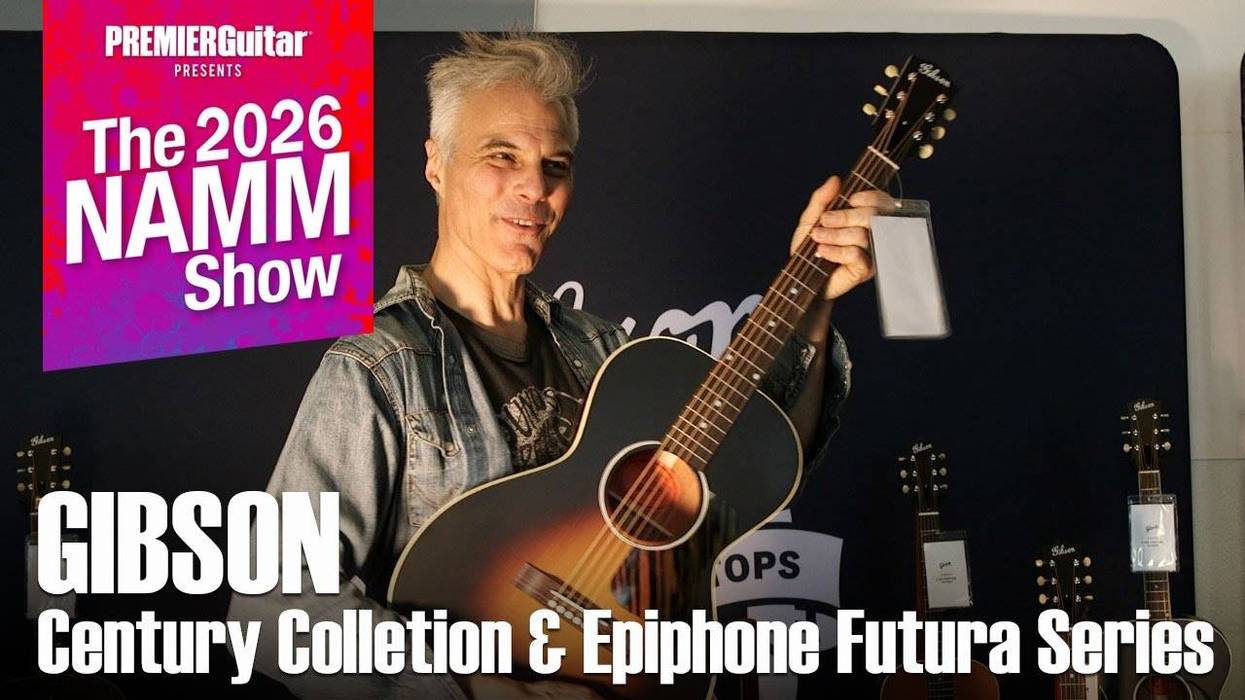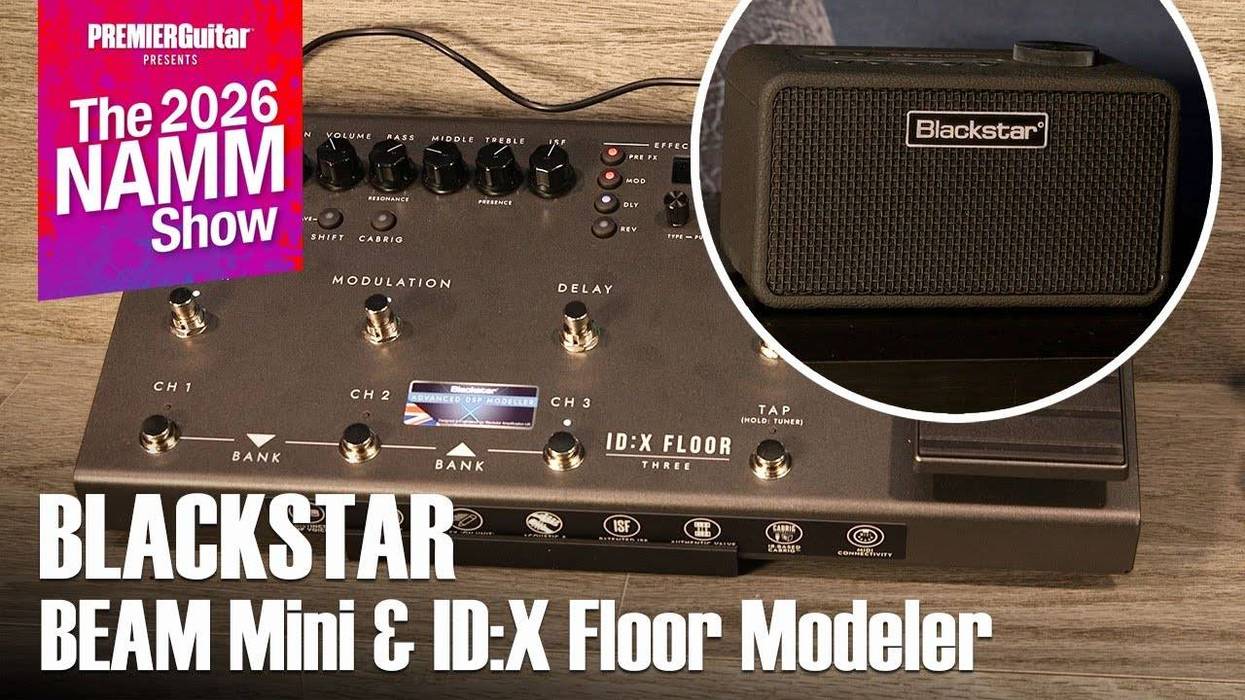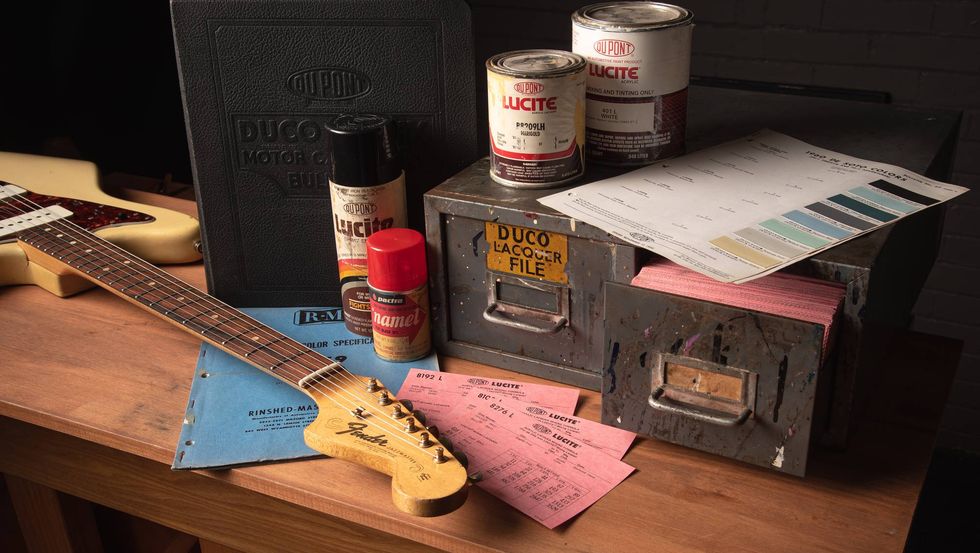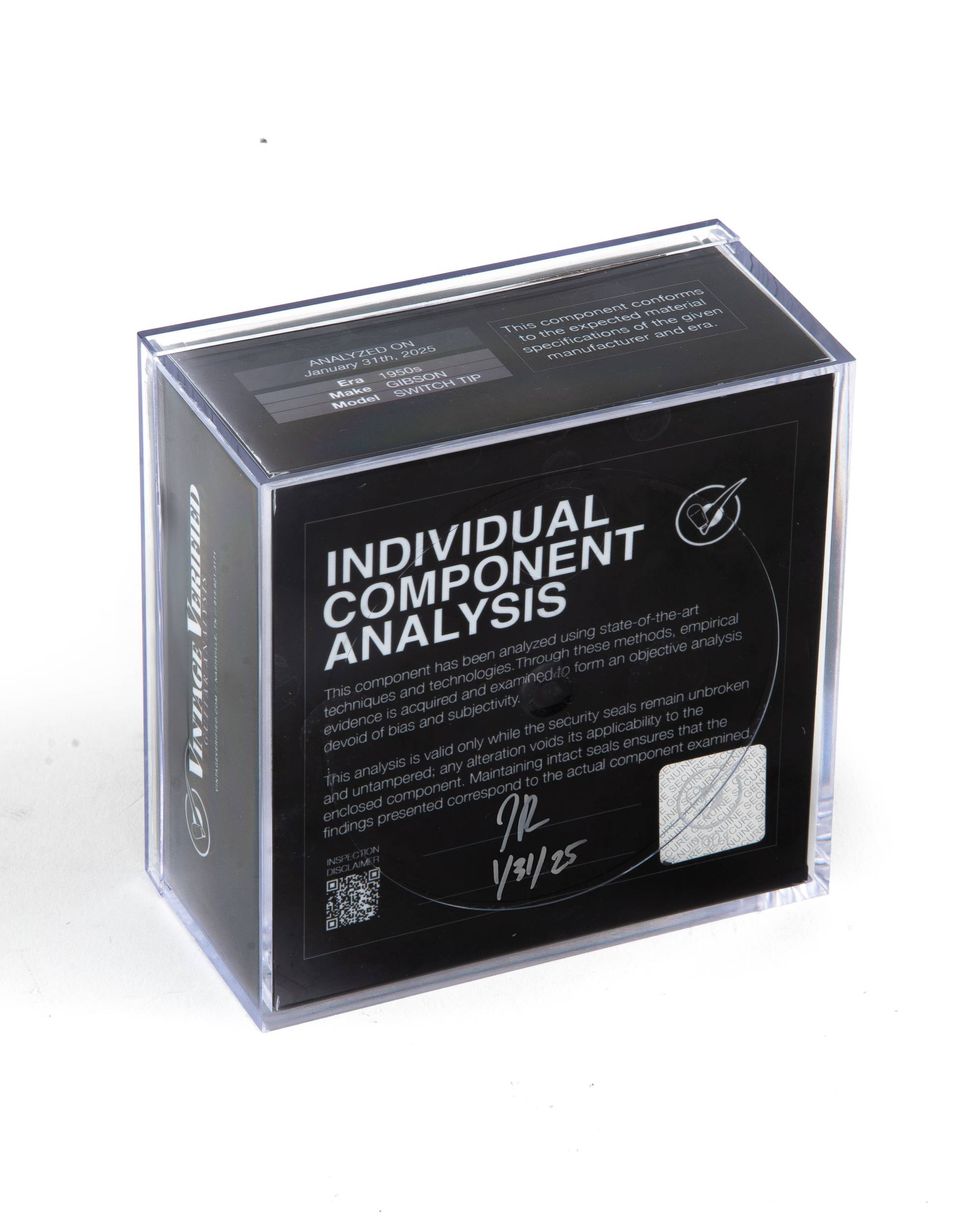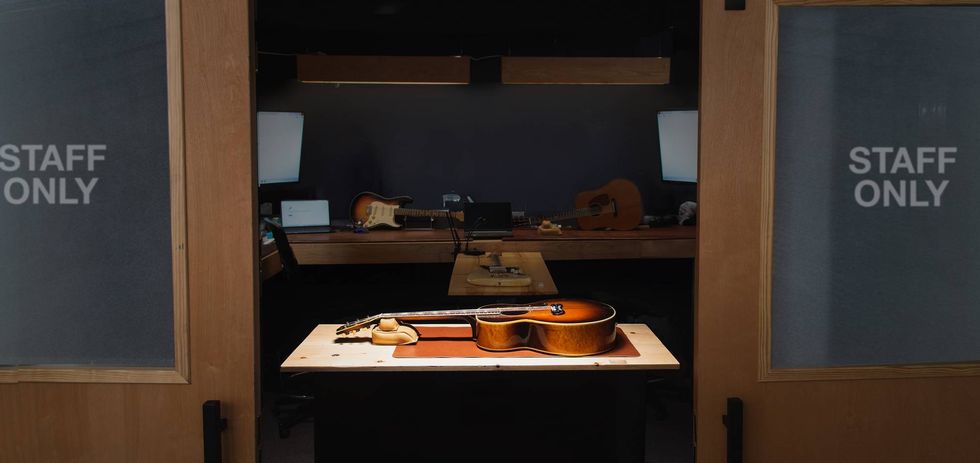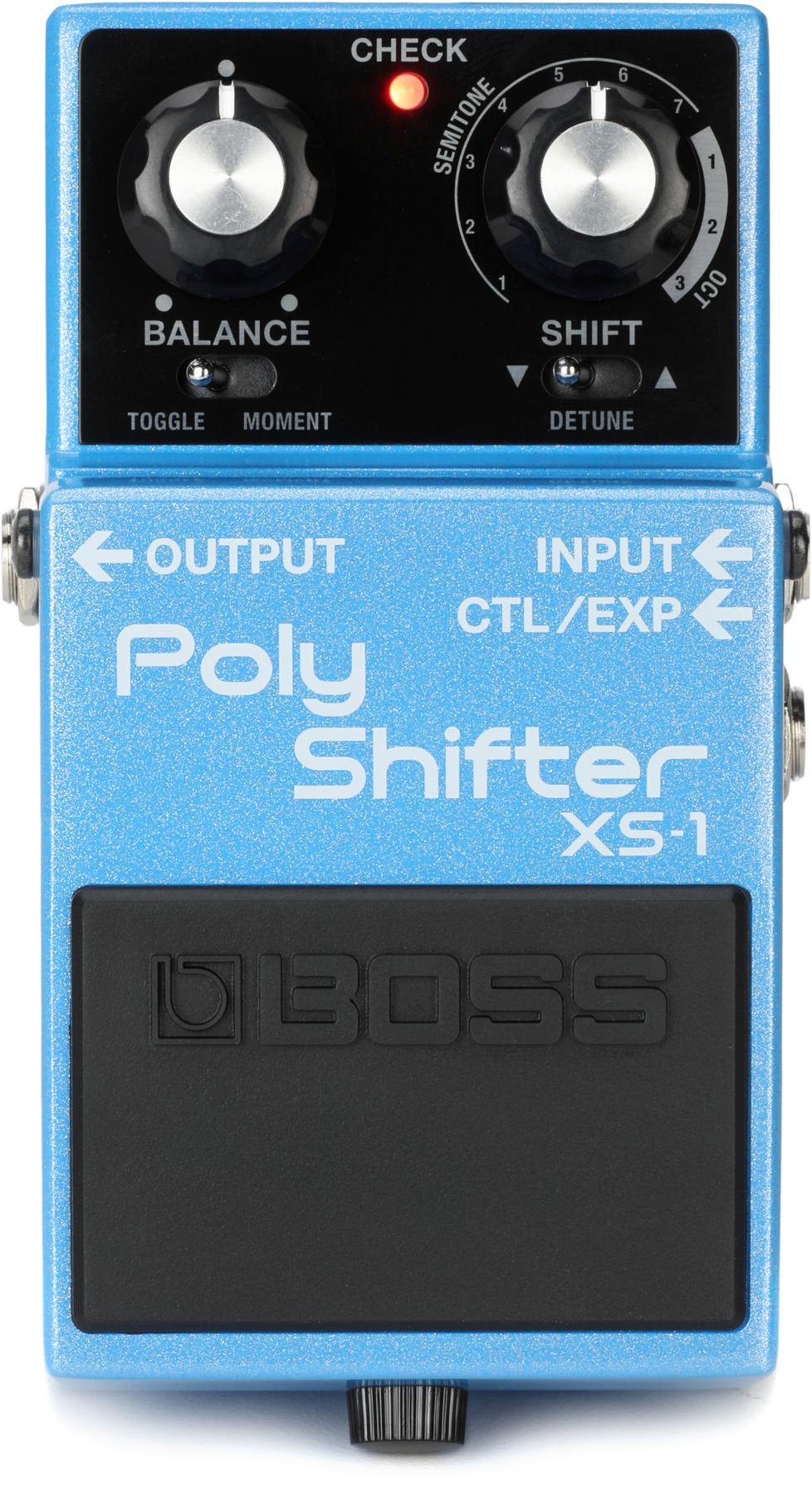At some point along a journey of fuzz discovery, players find out that Sovtek Big Muffs—while a picture of Monster Island-scale, mid-scooped fuzz perfection in isolation—can go missing in a big, burly rock mix. A lot of Muff clone builders tackle the problem using mid-boost controls. Rocket Surgeon (the pedal building arm of Nordstrand Audio) takes a different tack, relying on a simple switch that effectively makes the Boris two Muffs in one: A traditional mid-scooped Muff called “doom” and a mid-forward voice called “nuclear.” Neither re-casts the Sovtek-era Muff sound in a radical way, but both offer cool options for Muff newbies and experienced players looking for new variations of classic Russian Muff textures.
Red Star Rocket Craft
A lot of pedal makers seek boutique prices these days for craft and components that are quite ordinary. Rocket Surgeon isn’t one of them. The Boris is well put together and seems designed to be repairable in the event something fails. The footswitch and jacks, including the 9V jack, are affixed to the enclosure and independent of the circuit board.
The circuit board reflects a thoughtful approach to circuit layout and execution, with components arrayed neatly on a through-hole board. The 9V battery, if you choose to use one, fits tidily between the footswitch housing and the foam mounted on the enclosure interior. The knobs, meanwhile, have a smooth but firm resistance that enables precise adjustments and prevents accidental changes. The whole feels like a piece of gear that will survive real and rigorous touring.
Thermonuclear Expressions
In the vintage-voiced doom mode, the Boris sounds most authentically Sovtek-like at treble-y tone settings. And it’s at these trebly settings that the pedal feels most airy and responsive. To my ears, Boris is neither as buzzy, nor as detailed as the “bubble font” Sovtek and two excellent “Civil War” clones I used as reference. But I really love the toppy, more searing side of Muff circuits. And players that like the Gilmour or desert-rock, power-haze personality of Russian Muffs might interpret the same lack of top end effervescence as smoothness—a texture many Muff fans relish. At most equivalent settings it seems to have slightly less output, too. But that is no bad thing, and you needn’t fear the Boris being underpowered. It may be a more reserved Muff, but it is hardly quiet.
Ratings
Pros:Sturdy, thoughtful construction. Smooth Muff-like textures that work well at high volumes with dirty amps.
Cons:
Can sound highly compressed and less complex in nuclear mode.
Tones:
Ease of Use:
Build/Design:
Value:
Street:
$199
Nordstrand Rocket Surgeon Boris
nordstrandaudio.com
In nuclear mode, the Boris is much louder. And a lot of players will get out over a barreling drummer or bass player via the dB bump alone. Nuclear mode’s EQ profile definitely adds midrange along with the volume boost, as advertised. But the resulting EQ curve tends to sound relatively flat, and the effect of that EQ profile varies significantly depending on your guitar, amp, and musical setting. My Stratocaster’s bridge pickup, for instance, thrived in nuclear mode—sounding smooth and present for leads and detailed when playing chords. Fender single-coils also bring out the most unique and most pronounced effect of the midrange boost in nuclear mode—a subtle cocked-wah texture that becomes more pronounced as you roll up the tone control. If you’re a Mick Ronson fan looking for a meatier fuzz texture than an Mk I Tone Bender, the Boris is a great place to start.
Playing chords with humbuckers is a less ideal fit. Here the Boris can make the leveled EQ profile sound compressed and even claustrophobic. And picking dynamics—never a super-strong suit of Muff-type stomps—suffer at all but the highest tone settings. Certain humbucker lead tones are a delight, however. Boris can tame a too-hot or ice-picky bridge humbucker. Neck pickup lead tones sound both focused and wooly—a perfect vehicle for hazy syntheses of Disraeli Gears and Welcome to Sky Valley.
One upside to Boris’ nuclear tone profile is that the smoother, less gainy nature translated well to bass applications. It’s a fair bet that Nordstand Audio’s extensive history as a builder of basses and at least one bass-centric effect may have paid dividends here.
The Verdict
Boris underscores how wide and varied the Big Muff template can be. It seems tuned for players who like a Big Muff to be predictably even-tempered and smooth at high volume. (Gilmour fans circa 1994 and stoner rock acolytes are likely to be psyched). Muff fans that prefer a Sovtek with tone turned to 10, or the laser heat of early “triangle”-style Muffs, may be inclined to look elsewhere. But there are copious audible treats to be found in the Rocket Surgeon circuit—regardless of your Big Muff biases.









